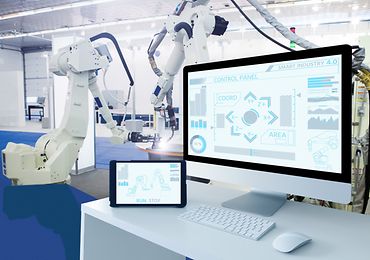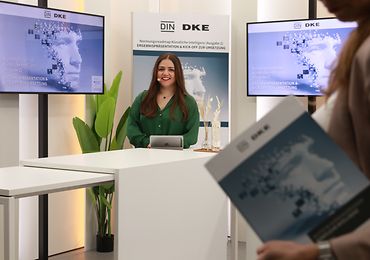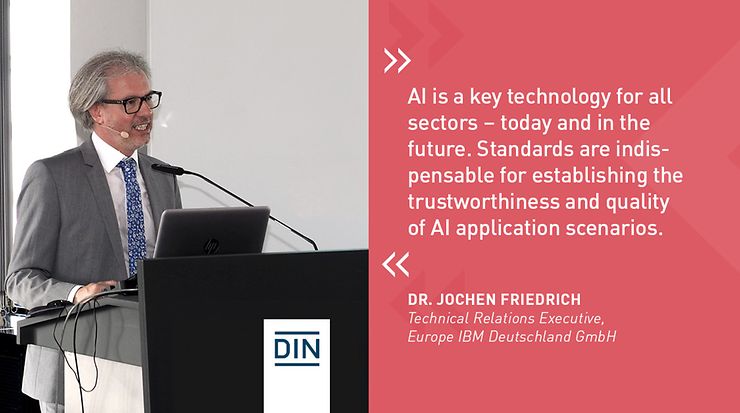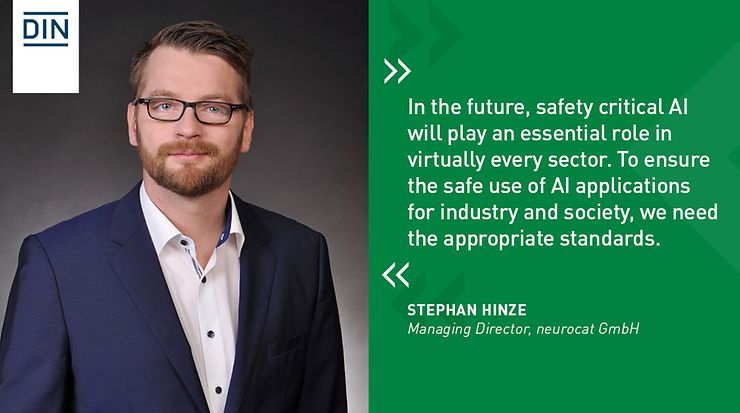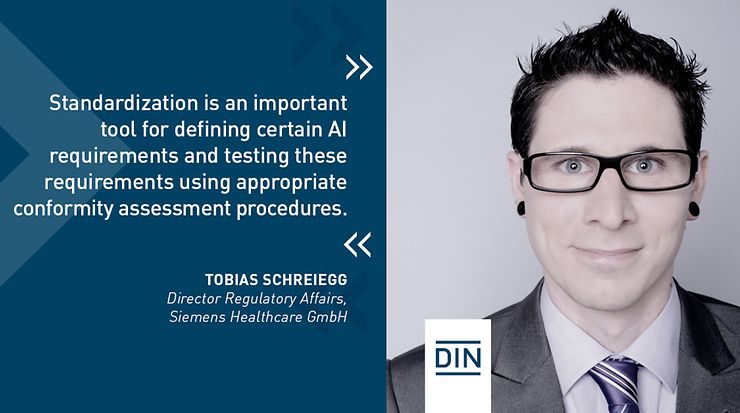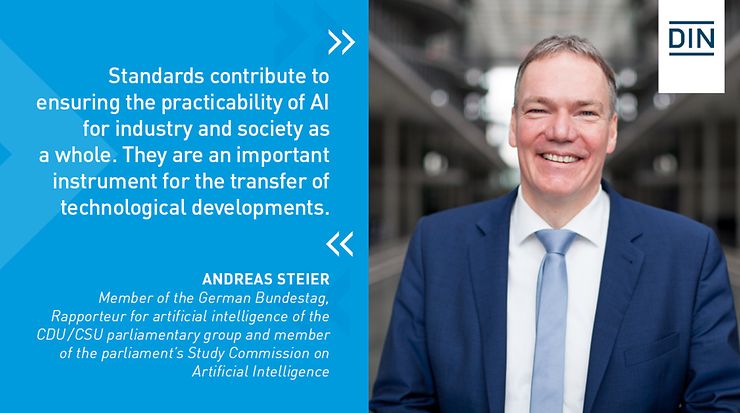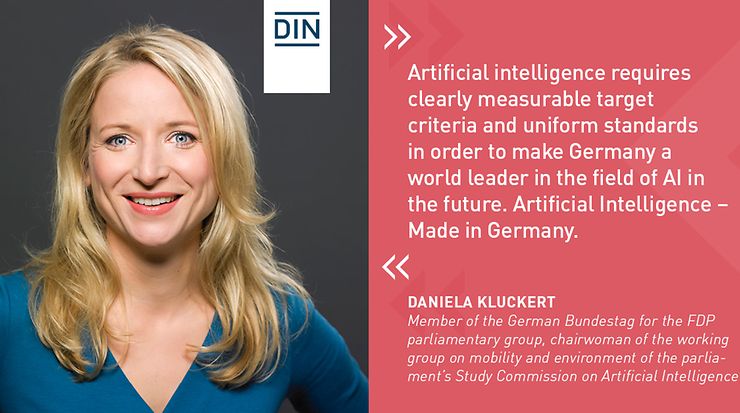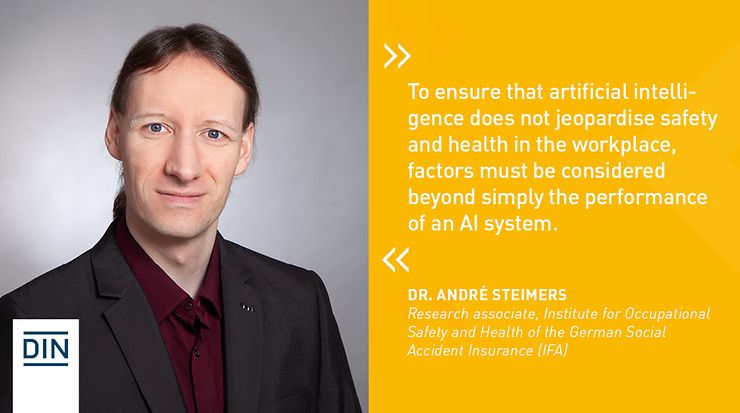What is the role of standardization in AI?
It is up to standardization to structure the AI landscape actively and to create a clear framework for action together with experts and stakeholders from various sectors and disciplines. The aim is to use standards and specifications to strengthen trust in and acceptance of AI in industry and society. This concerns in particular the quality, security, traceability, transparency and reliability of AI applications. Standardization enables German SMEs in particular to gain access to the global market via open interfaces and uniform requirements and to position themselves successfully with their ideas on an equal footing with major international players.
Artificial intelligence needs European values
With the participation of all relevant stakeholders from industry, society, science, research and the public sector standards and specifications can be used to technically describe requirements for AI and AI applications, such as transparency, explainability and quality. From the technical view, we support protection against distortion, discrimination and manipulation and thus a use of AI that is in line with European values.
Standards as a building block of European AI regulation
In its draft on AI regulation (Artificial Intelligence Act), the EU Commission also assigns a central role to standards in the area of high-risk AI applications. Requirements for AI systems, including transparency, robustness and accuracy, are to be technically specified by harmonized European standards. The AI standardization roadmap plays a central role here: it already formulates concrete requirements for standards and specifications to be developed in implementation of the planned AI Act. Find out exactly how the interaction between standardization and the AI Act works.



